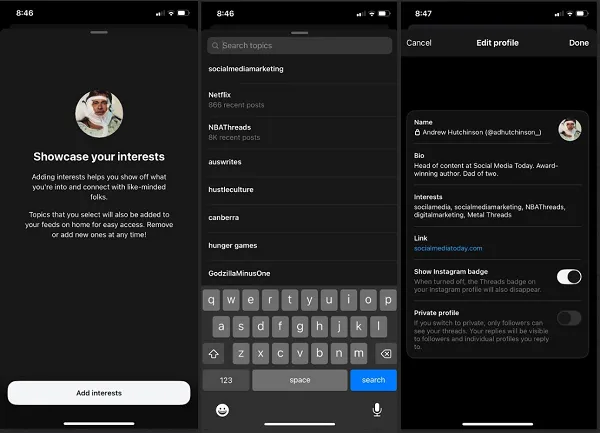7 key lessons from 'How to Win Friends and Influence People'
Discover 7 essential lessons from How to Win Friends and Influence People to enhance your relationships and communication skills effectively.


In a world that thrives on communication, understanding human relationships has never been more crucial. Whether you’re navigating professional environments, trying to build lasting friendships, or simply aiming to be a better communicator, one timeless book has stood as a beacon for social success: How to Win Friends and Influence People by Dale Carnegie. First published in 1936, this revolutionary guide has remained an indispensable tool for anyone looking to improve their interpersonal skills.
What makes this book so compelling isn’t just its age, but its enduring relevance. Its principles are timeless, rooted in empathy, respect, and the psychological understanding of human nature. The core messages of this book haven’t lost their power to transform lives, even after decades.
This article delves into seven key lessons from How to Win Friends and Influence People that will help you develop authentic connections, improve your social skills, and build lasting influence.
7 timeless lessons to master social interactions
1. Become genuinely interested in other people
One of the central themes of Carnegie’s book is the power of genuine interest in others. People love talking about themselves and their interests, and they appreciate when others take the time to listen and engage sincerely.
By showing a genuine interest in other people, you immediately position yourself as someone they can trust. Ask questions about their lives, opinions, and experiences, and show empathy by actively listening. When you take the focus off yourself and centre it on others, they feel valued and respected, which in turn fosters goodwill and opens doors for deeper, more meaningful connections.
Application Tip: If you're in a conversation, avoid talking too much about yourself. Instead, ask open-ended questions that allow the other person to share their thoughts. Reflect what they say to show you're genuinely engaged.
2. Smile more often
This might sound simple, but the impact of a smile is profound. Carnegie emphasises the importance of smiling, as it conveys warmth, openness, and approachability. A smile can instantly break the ice, making you more likeable and creating a positive atmosphere.
A smile is often the first impression someone has of you, and it can set the tone for a more productive and friendly conversation. It’s a universal sign of goodwill that transcends language barriers and makes you seem more approachable and authentic.
Application tip: Before entering any social interaction, take a moment to relax and smile. It not only helps in making you appear more friendly but also can improve your own mood.
3. Remember people's names
Carnegie’s advice to remember and use people’s names is a simple yet powerful technique to build rapport. Our names are an integral part of our identity, and when someone uses our name in conversation, it instantly makes the interaction feel more personal and respectful.
Using someone’s name doesn’t just show that you’re paying attention—it also signals that you value them as an individual. This small act can make a huge difference in how you’re perceived, making people feel more at ease and appreciated in your presence.
Application tip: Make a conscious effort to remember people’s names and use them when addressing them. It helps in forming a connection and shows attentiveness.
4. Be a good listener
The ability to listen actively is one of the most powerful communication skills you can develop. Carnegie encourages people to become great listeners, as it’s the fastest way to build rapport and foster genuine relationships.
People love to talk about themselves, their achievements, and their passions. By giving them the space to do so, you not only make them feel valued but also create an environment where they are more likely to open up and trust you. Being a good listener doesn’t mean just hearing what someone says—it means engaging with them, showing empathy, and responding thoughtfully.
Application Tip: Practice active listening by maintaining eye contact, nodding, and summarising what the other person says to show that you’re truly engaged.
5. Talk about other person’s interests
One of Carnegie’s most effective strategies for influencing others is to frame conversations in terms of the other person’s interests. People are more likely to be persuaded or engage in a discussion when the topic aligns with their values and passions.
By focusing on what excites and motivates the other person, you demonstrate respect for their perspective, which encourages them to listen and respond positively. This not only helps in personal relationships but can also be incredibly effective in professional negotiations.
Application Tip: Before starting a conversation, think about what the other person cares about. If you can link your message to their interests, they’ll be more likely to engage and respond positively.
6. Make the other person feel important—and do it sincerely
Carnegie underscores the importance of making others feel important, sincerely and without flattery. Everyone wants to feel valued and appreciated, and by recognising the contributions and qualities of others, you create a bond based on mutual respect and admiration.
However, this appreciation must be genuine. People can sense when compliments are insincere, so ensure that your recognition is heartfelt. When people feel truly valued, they’re more likely to support you, trust you, and become your allies in both personal and professional settings.
Application tip: Take the time to acknowledge others’ efforts, whether in a small conversation or a larger setting. A simple, sincere compliment can go a long way in building trust.
7. Avoid criticising, condemning, or complaining
Criticism, condemnation, and complaining often put people on the defensive, leading to conflict and strained relationships. Carnegie advises against these negative approaches, emphasising that people respond better to positive reinforcement than to harsh judgments.
Instead of pointing out what’s wrong or criticising someone's behaviour, focus on offering constructive feedback or, better yet, praising their positive qualities. When you focus on the good in people and situations, you create an environment of positivity that fosters trust and mutual respect.
Application tip: When faced with a situation where criticism is warranted, try to reframe it in a positive light. Offer feedback that highlights what the person can improve without diminishing their confidence or sense of self-worth.
Conclusion
How to Win Friends and Influence People is more than just a guide to personal development—it’s a manual for building genuine relationships based on respect, kindness, and empathy. By implementing these seven key lessons, you’ll not only enhance your ability to connect with others but also build a strong foundation for lasting influence.
Incorporating these principles into your everyday interactions will not only make you a better communicator but will help you become a person others genuinely admire and trust. Relationships are the cornerstone of both personal and professional success, and with the insights from this timeless book, you can unlock the doors to deeper connections and more meaningful influence.





![Which Countries Have Invested the Most into AI Development [Infographic]](https://imgproxy.divecdn.com/qnTgGmUnhhtyx1NChJZ7bBc4fHuHc9BC8NoXo_nBWUE/g:ce/rs:fit:770:435/Z3M6Ly9kaXZlc2l0ZS1zdG9yYWdlL2RpdmVpbWFnZS9haV9pbnZlc3RtZW50X2luZm8yLnBuZw==.webp)
![A Guide to Reels Ads [Infographic]](https://imgproxy.divecdn.com/wCamrSuvp9Nam-KS-7Pv-nJcB4YAXduCWWHpdZBsVpY/g:ce/rs:fit:770:435/Z3M6Ly9kaXZlc2l0ZS1zdG9yYWdlL2RpdmVpbWFnZS9yZWVsc19hZHNfaW5mbzIucG5n.webp)






![31 Top Social Media Platforms in 2025 [+ Marketing Tips]](https://static.semrush.com/blog/uploads/media/0b/40/0b40fe7015c46ea017490203e239364a/most-popular-social-media-platforms.svg)



















































































































































































![How to Find Low-Competition Keywords with Semrush [Super Easy]](https://static.semrush.com/blog/uploads/media/73/62/7362f16fb9e460b6d58ccc09b4a048b6/how-to-find-low-competition-keywords-sm.png)
